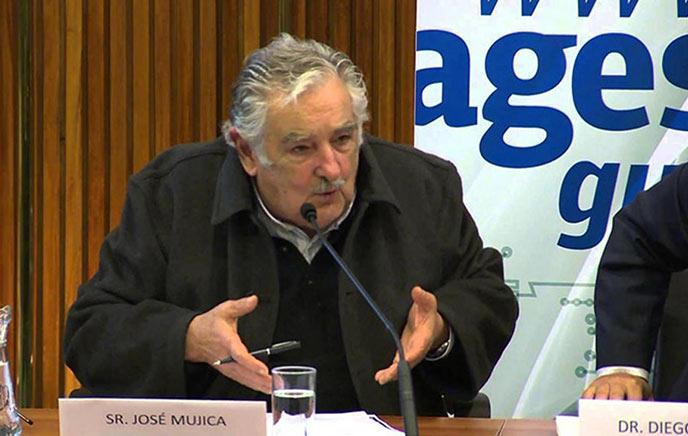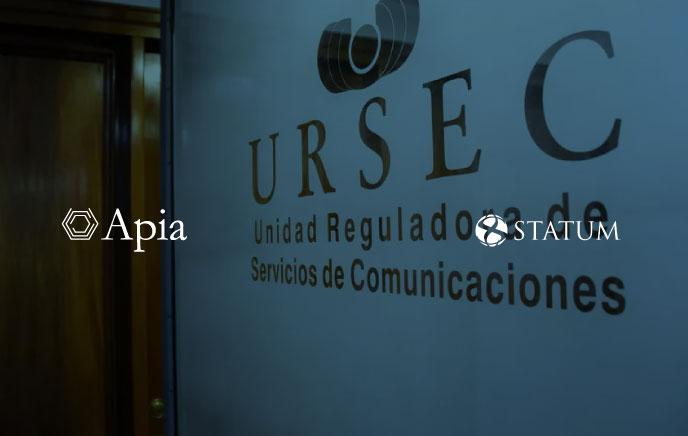Mujica celebró liderazgo de Uruguay en materia de Gobierno Electrónico
Resumen:
El día 4 de setiembre tuvo lugar una conferencia realizada en la Sala de Actos del edificio del BROU, donde difundieron nuevas cifras vinculadas a la implementación del Gobierno Electrónico en Uruguay. Estos datos lograron un fuerte impacto en todo el territorio nacional.
Información:
Los datos que aportaron fueron los siguientes: según el Índice global de Gobierno Electrónico de la ONU, nuestro país mejoró 24 posiciones respecto a la edición anterior realizada en el año 2012. También se encuentra en el primer puesto a nivel regional en este concepto, tercero a nivel mundial en cuanto a la participación digital y décimo cuarto de un total de 193 países en materia de e-services.
Mediante la web, la ciudadanía cuenta con el 100% de la información de gestiones de forma digital, el 70% pueden iniciarse de manera electrónica, lo que da como resultado un total de 300 trámites que son plausibles enteramente a través de la red. El objetivo es llegar a los 1700 trámites.
Además, se han establecido más de 80 servicios para el intercambio de información entre organismos estatales, gracias a las cuales se eliminaron 38 mil consultas y transacciones diarias que solían consumir los recursos y el tiempo de la población. Junto con este acontecimiento, también se cumplió con los estándares planificados de la información en cuanto a la transparencia activa.
El objetivo planteado de que la totalidad de los ministerios disponga del gobierno electrónico para el presente 2014, se está llevando adelante de acuerdo a lo estipulado, abarcando en la actualidad al 90% de los mismos.
En palabras del Presidente José Mujica, “Para el hombre de la calle gobierno electrónico significa la posibilidad de que no tengas que ir al mostrador. Poner a punto toda esa maquinaria para dar respuesta no es una cosa sencilla, por eso, les tengo que agradecer. Esto no se logró en unos meses, lleva años de trabajo”.
El prosecretario de la Presidencia, Diego Cánepa, agregó que los datos “son ejemplo de reforma del Estado como porfiados hechos que hablan objetivamente de los cambios que hemos realizado".
Ya desde el año 2005, el Poder Ejecutivo manifestó su voluntad para dar continuidad al Gobierno Electrónico a través de AGESIC, pero fue en el año 2010 que se determinó al Gobierno Electrónico como un instrumento de transformación en la sociedad uruguaya.
Recordemos que en el 2009, STATUM ganó la licitación para proveer una herramienta y metodología de implementación para la Gestión de Administración Documental y Procesos de negocio en todo el Estado, por lo que es una gran responsabilidad para la empresa formar parte de esta importante transformación que implica a toda la Administración Central del Uruguay.
Los datos proporcionados demuestran el gran impacto y alcance que la Plataforma APIA ha logrado, donde también es importante agregar que no se trata de una cuestión enteramente tecnológica, sino que quedan implicados los hábitos de la ciudadanía, sus percepciones en cuanto al tiempo y al espacio, las nuevas relaciones sociales que se establecen en los procesos burocráticos, el factor político en la apuesta a la transparencia y al acceso a la información, y en síntesis, la manera en que STATUM ha sido capaz de producir una plataforma tecnológica excepcional para la resolución de los temas públicos más complejos en la comunidad que forma parte.
FUENTES:
www.agesic.gub.uy
www.presidencia.gub.uy
www.statum.biz





Comentarios (0)
Deja un comentario